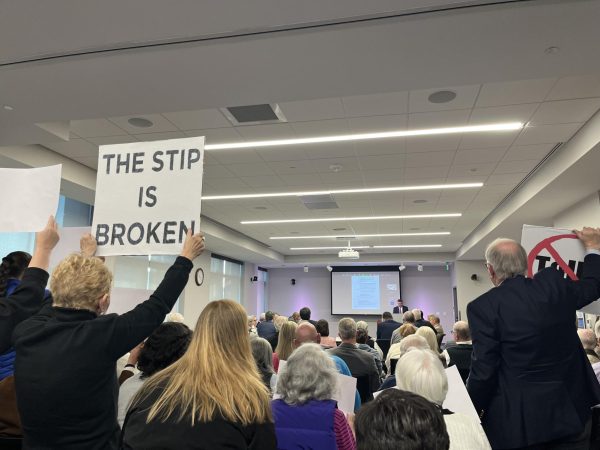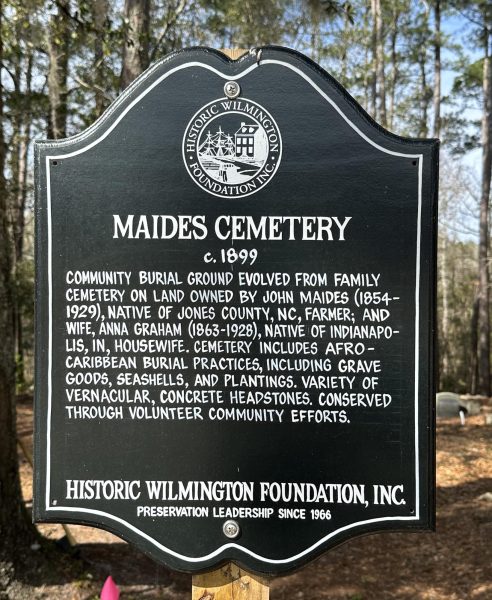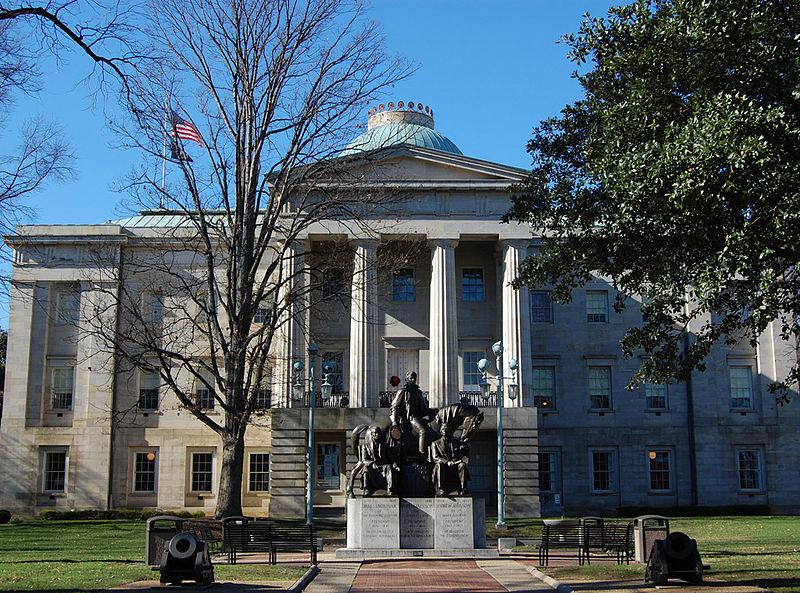NC House Bills to know: Local judge speaks on campus
Courtesy of User: (WT-shared) Bz3rk at wts wikivoyage
The North Carolina State Capitol building, where these bills discussed by Judge JH Corpening were deliberated over by NC officials.
March 25, 2017
Ready to discuss some of the house bills and other news relating to NC District 5 as well as the entire state, New Hanover County NC District Court Chief Judge JH Corpening was invited to speak to students by the UNC Wilmington University Political Action Committee on March 22 at 7 p.m. in Leutze Hall room 132.
The event was moderated by a member of the UNCW UPAC who asked Judge Corpening about house bills that will be going into effect within the next year or so. Judge Corpening’s court deals with civil, criminal, domestic relations and juvenile cases as well as cases that involve mental health and probate- the judicial determination of the validity of a will.
The first bill discussed, House Bill 100, was originally passed in the NC General Assembly before being vetoed by Gov. Roy Cooper. The bill would restore partisan judicial elections for NC superior and district courts.
“On Tuesday next after the first Monday in May preceding each general election to be held in November for the officers referred to in subsection (a) of this section, there shall be held in all election precincts within the territory for which the officers are to be elected a primary election for the purpose of nominating candidates for each political party in the State,” the bill read.
Judge Corpening said that this was disconcerting to him. Elections should not be based on partisanship, and this bill also allows for strange instances to occur. For example, Judge Corpening explained how during a previous election, he saw the name of a judge that had not been practicing in nearly 15 years on a Republican voting ticket. This judge was a rather liberal man but was on a conservative ticket. The judge said that efforts to make judicial elections partisan would not show who would be a good judge to vote for, rather the Bar Association could and already was showing those facts.
The next bill, House Bill 239, would lessen the number of appellate court judges from 15 to 12. The bill, which has passed into its first reading in the NC Senate, argues that there is enough work for only 12 judges to do the job successfully. Judge Corpening said that he did not know the exact caseload and work required of that court. However, he recalled how when there were fewer than 15 judges in the past it would take him 1-2 years to have cases involving children in abusive or risky homes completed, thus allowing for the child to be removed. With 15, it can take around 8 months. In this case, having 15 judges may be the better choice, according to Corpening.
The last bill discussed and what took up the majority of the visit was House Bill 280, or the “Raise the Age” bill. This bill would raise the age of which youths can be convicted as adults in the state of North Carolina. Judge Corpening is especially excited about this bill since, “We have been punishing 16 to 17 year olds as adults since 1919” when they do not always understand the full consequences of their actions.
“It is so important to stop punishing as we have been [doing],” Judge Corpening said. He told a story of a father whose “intellectually disabled” son vandalized a car with some friends and was tried as an adult. Though this boy was eventually able to find work with the Orioles team up in Maryland for some time, when he returned to Wilmington, he was fired on his first day at Harris Teeter due to his record and was not able to find work after that.
The judge also explained that although there are programs that expunge crimes from people’s records, there are also databases that take these public documents, save them and sell the data. This way, fully expunging someone like a young person of stupid decisions that they made can be near impossible.
Judge Corpening said in this case that trying them as adults sticks them with a tag that can be hard to remove. And since 16 to 17 year old children are not fully developed mentally, they do not always understand the consequences of their actions, so this bill protects youths.
To fully deal with the problems that face at-risk youths, the judge explained that they will need to take a look at other forms of punishment like school suspension as well. But, for now, this bill is a good step forward.
The moderator also asked about the judges past work, how he became a judge and how the judicial system in this district works. Judge Corpening practiced privately as a lawyer for 12 years prior to being appointed a judge, has worked as a judge for nearly 25 years and has a rating of 4.63 out of 5 from the NC Bar Association.
The UNCW UPAC is a new organization that is non partisan and welcomes those of all political affiliations and ideologies. They also afford students the opportunity to get involved in local politics while in school.















